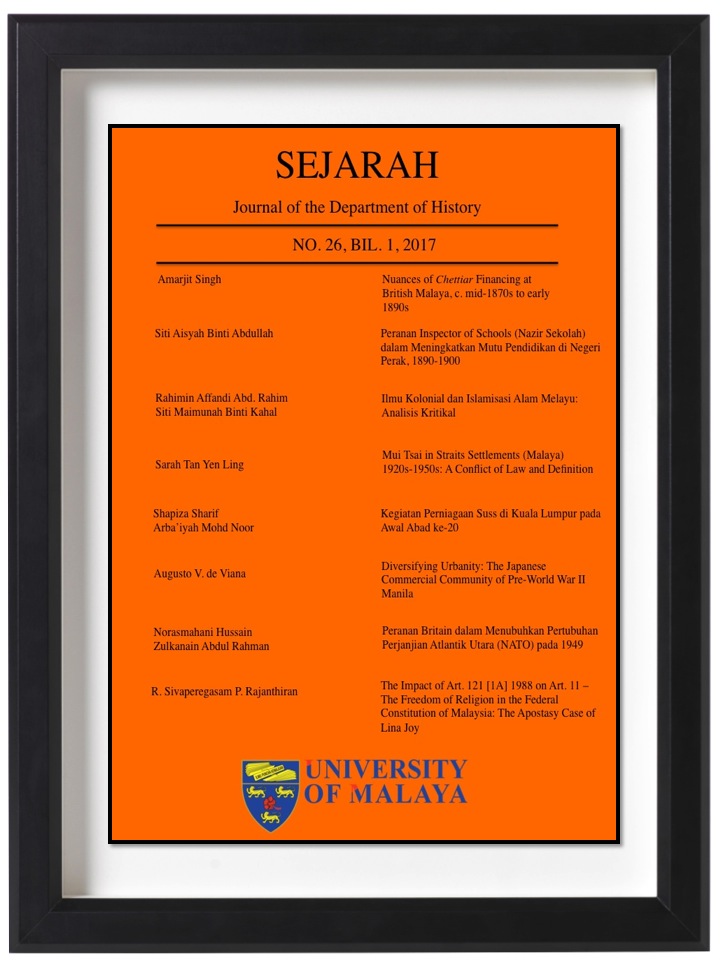RETHINKING THE POSITION OF ETHNIC CHINESE INDONESIANS
DOI:
https://doi.org/10.22452/sejarah.vol25no2.7Abstract
This article examines the position of ethnic Chinese Indonesians from the pre-colonial period to the post-Suharto era, and factors that were at play. Chinese Indonesians experienced various discrimination and attacks ever since the Dutch colonisation period and, most severely, during the Suharto’s presidency (1966-1998). Under Suharto, the state perceived them as the potential ‘fifth column’ for China; thus, imposing upon them forced assimilation, restriction from politics, public service, military and entrance to public universities, and to finally coerce them to abandon their ethnic and cultural identity. Furthermore, attacks against the Chinese reached its climax in May 1998 amid the Asian financial crisis when riots against the Chinese broke out in many parts of the country. However, the condition of the Chinese improved significantly after the end of the Suharto regime on 21 May 1998 and following the rise of open-minded Indonesian political leaders as well as the rise of China as an economic power. This article concludes that the position of ethnic Chinese Indonesians was shaped by not only the interests and agendas of the power-holders but also the anti-communist politics associated with the Cold War, the rise of open-minded Indonesian political leaders, Indonesia- China relations and the globalisation of the economic position of China.


